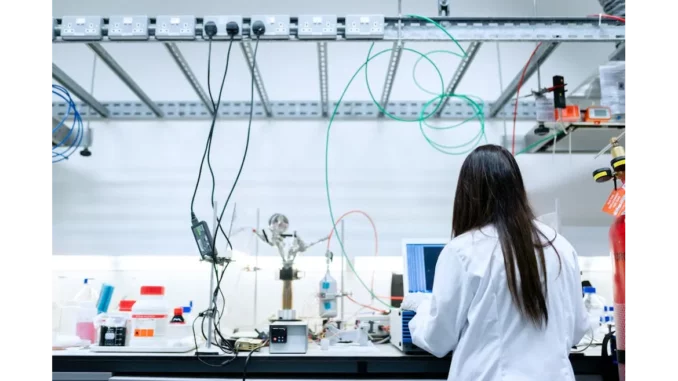
As we usher in 2024, the realm of drug discovery is experiencing a profound transformation, largely due to the strides made in artificial intelligence (AI). The incorporation of AI in this field is poised to accelerate the drug discovery process, rendering it more economical and precise. This discourse delves into the current state of AI in drug discovery, notable advancements, the challenges encountered, and the potential future landscape.
At present, AI has established itself as a formidable asset in the drug discovery domain, tackling some of the most persistent challenges the industry has faced. Historically, drug discovery is an arduous, costly, and unpredictable endeavour, often spanning over a decade and necessitating billions of pounds to bring a new drug to market. However, AI’s proficiency in swiftly and accurately analysing vast datasets is revolutionising this process. AI algorithms are capable of pinpointing potential drug targets by meticulously examining genetic, clinical, and biochemical data, unveiling insights that were previously beyond reach. A critical contribution of AI lies in the preliminary phases of drug discovery. AI-driven screening methodologies can assess extensive libraries of compounds to discern those most likely to bind with a target, a procedure that traditionally demanded substantial time and resources. Predictive modelling further augments this by evaluating the safety and efficacy of drug candidates, steering researchers towards prioritising certain compounds for subsequent development.
The allure of AI in drug discovery has not escaped the notice of technological behemoths. Organisations such as Google, Microsoft, and NVIDIA are investing significantly in this sphere. Google’s AlphaFold2 has fundamentally altered protein structure prediction, an essential element in comprehending how drugs interact with biological targets. Similarly, NVIDIA’s AI-based platforms are being employed to optimise various stages of drug development, from conceptual design to clinical trials. The COVID-19 pandemic underscored AI’s potential in drug repurposing, wherein existing drugs were scrutinised for new therapeutic applications. This methodology has since been extended to other domains, such as oncology, where AI is utilised to identify new applications for antipsychotic drugs in cancer treatment. Furthermore, deep learning models are now harnessed to analyse phenotypic data, detecting cellular changes indicative of potential drug efficacy. AI is also beginning to influence the design of entirely novel drugs. Several companies have ventured into this territory, with some AI-designed drugs progressing to early clinical trials. Although none have yet reached the market, these initiatives signify a momentous stride towards AI-driven drug innovation.
Despite these advancements, the journey of AI in drug discovery is not devoid of challenges. As of 2024, no AI-designed drugs have successfully completed the transition from laboratory to clinic. Regulatory obstacles, data quality issues, and the necessity for robust validation remain formidable barriers. The US Food & Drug Administration (FDA) has acknowledged these challenges, issuing guidelines to assist in navigating the utilisation of AI in drug discovery. Establishing trust in AI models is another vital aspect. Researchers must ensure that AI tools are dependable and yield results that can be replicated in real-world settings. This necessitates not only technical validation but also addressing sociological and ethical considerations. Looking forward, the future of AI in drug discovery appears promising. As technology progresses and regulatory frameworks become more defined, AI is anticipated to assume an increasingly central role in drug development. The fusion of AI with other technologies, such as genomics and personalised medicine, could further revolutionise the field, paving the way for more effective and tailored therapies.
The potential of AI to transform the drug discovery industry is unequivocal. As we continue to explore and harness this technology, the opportunities for enhancing human health are vast. The integration of AI with existing methodologies and emerging technologies signals a new era in drug development, where precision, efficiency, and innovation converge to address some of the most pressing healthcare challenges of our time. As we advance, the collaborative efforts of tech giants, pharmaceutical companies, and regulatory bodies will be crucial in realising the full potential of AI in drug discovery, ultimately leading to improved health outcomes and a brighter future for global healthcare.


Be the first to comment